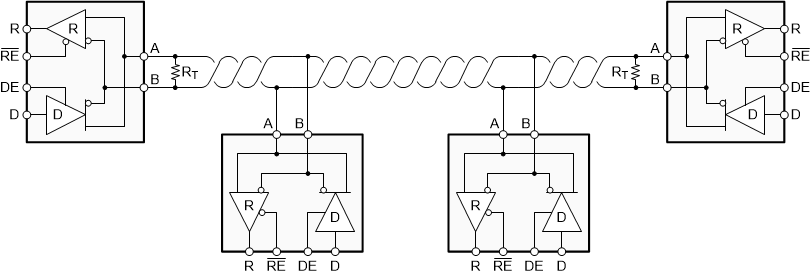ZHCSGF8A July 2017 – November 2018 THVD1500
PRODUCTION DATA.
9.2 Typical Application
An RS-485 bus consists of multiple transceivers connecting in parallel to a bus cable. To eliminate line reflections, each cable end is terminated with a termination resistor, RT, whose value matches the characteristic impedance, Z0, of the cable. This method, known as parallel termination, allows for higher data rates over longer cable length.
 Figure 18. Typical RS-485 Network With Half-Duplex Transceivers
Figure 18. Typical RS-485 Network With Half-Duplex Transceivers